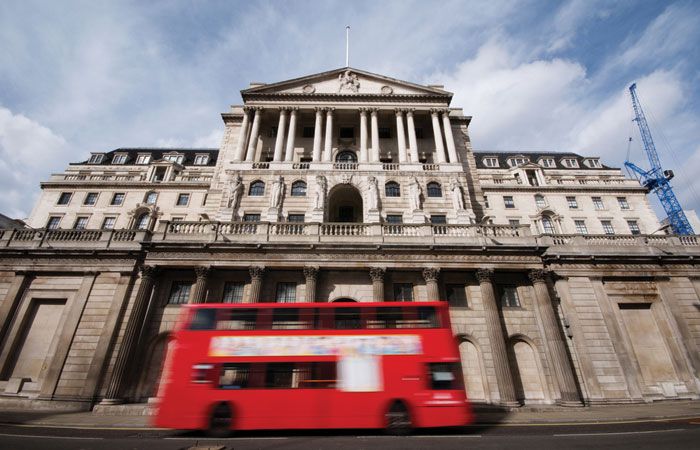
Bank of England policymaker Catherine Mann voted to keep rates on hold at 5% yesterday because she wanted to avoid a see-sawing “boogie-dance” with policy rates.
Mann, a hawkish external member of the Monetary Policy Committee, said she had voted hold in the body’s last two meetings because she is concerned about persistent inflation and weaker economic growth in the UK.
A key factor behind rising prices are lifting wages, particularly in the dominant service sector, she said in a speech to central bankers in Vilnius, Lithuania.
Services inflation rose by 5.2% in the year to July, down from 5.7% in June, according to Office for National Statistics data — but the MPC have been clear that they want to see that figure fall below 5%.
And she also voted to hold again yesterday along with the majority of the nine-member body.
Mann said: “If I had voted to hike in the meeting just past only to cut sometime soon hence, this would be the ‘boogie-dance’ with policy rates.”
She added that “structural behaviours in UK labour and product markets” have “systematically embedded inflation,” which would persist into the medium term.
Earlier this week, inflation came in at 2.2% in August, unchanged from July, just above the BoE’s 2% target.
Mann argued that rates policy “needs to remain restrictive for longer to purge these behaviours”, and avoid a back and forth of having to cut and then raise the base rate.
The decision by the MPC comes after UK gross domestic product flatlined in July, when economists had expected 0.2% of growth.
And as sterling has surged against the dollar since this week’s inflation report. This morning, one pound bought $1.329, up 1.2% from seven days ago.
Despite the Bank’s hold yesterday, central banks in the West have begun easing rates to stimulate economies as inflation eases.
The US Federal Reserve this week lowered interest rates for the first time since July 2023 with a bigger than usual cut of 0.5%, to a range of 4.75%-5%.
Fed chair Jerome Powell, said the “strong” move was needed as job market concerns grow even as price rises ease.
In June, the European Central Bank cut interest rates for the first time by 0.25% to 3.75% since September 2019 — beating the Bank of England and the US Federal Reserve to ease borrowing costs in its region.
Despite the hold from the MPC, money markets are fully pricing in a UK base rate cut at the committee’s November meeting, followed by a second in December.



